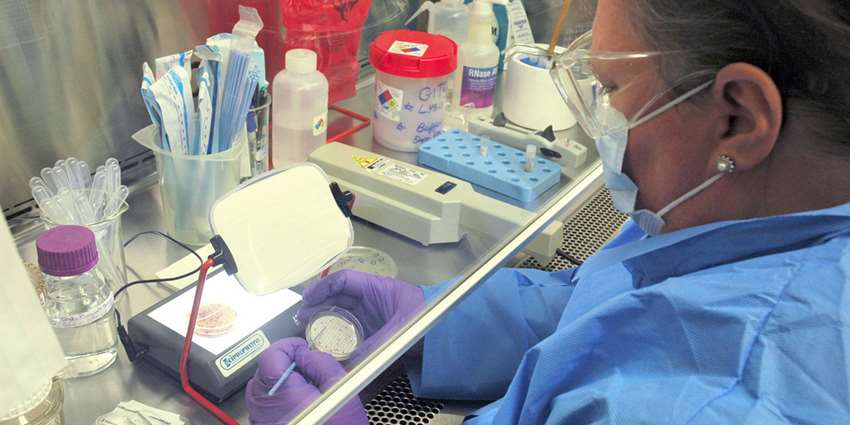Texas A&M University’s bacterial source tracking (BST) team received the 2014 College of Agriculture and Life Sciences Dean’s Outstanding Achievement Award for Interdisciplinary Research at the college’s awards ceremony Sept. 10 in the AgriLife Center.
The Dean’s Outstanding Achievement Awards are the highest awards in the College of Agriculture and Life Sciences presented to faculty, staff and students, according to Dr. William Dugas, acting vice chancellor and dean.
The BST team is a collective effort of Texas A&M faculty and staff dedicated to advancing the knowledge of bacterial pollution in Texas. The team is comprised of Dr. Kevin Wagner, associate director of the Texas Water Resources Institute (TWRI); Dr. Roel Lopez, director of the Texas A&M Institute of Renewable Natural Resources (IRNR); Dr. Raghavan Srinivasan, director of the Spatial Sciences Laboratory; Dr. R. Karthikeyan, associate professor in the Department of Biological and Agricultural Engineering; Dr. Saquib Mukhtar, associate department head and Extension program leader in the Department of Biological and Agricultural Engineering; and Dr. Terry Gentry, associate professor in the Department of Soil and Crop Sciences.
In the nomination letter, Dr. Neal Wilkins, former director of TWRI and IRNR, said the team has “collectively developed and collaborated on research projects to build on bacterial source tracking methodologies and applications in an effort to understand and reduce bacterial pollution in Texas. Since the state of bacterial source tracking and applications have evolved greatly in the past few years, new information becomes available and the team has worked diligently to make this information readily available.”
The BST team helped produce the Bacteria Total Maximum Daily Load (TMDL) Task Force Report, which was adopted by the Texas Commission on Environmental Quality and the Texas State Soil and Water Conservation Board for addressing state water quality issues. The team has completed numerous water quality projects for the state agencies over the past several years and continues to aid the development of the Texas E. coli Bacterial Source Tracking Library for the identification of human and animal sources of water fecal pollution.
In February 2012 the team organized and held a well-attended “Bacterial Source Tracking: State of the Science Conference” to foster partnerships and knowledge sharing between agencies, academic researchers and stakeholder groups.
To learn more, visit texasbst.tamu.edu.

